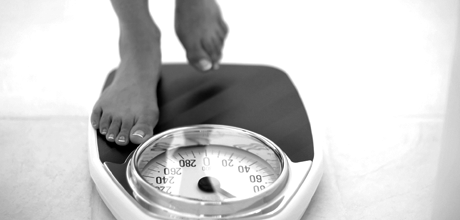
Struggling to lose weight? It may be time to think about your gut health. There’s a growing amount of research revealing the importance of your gut health when it comes to weight loss. Here’s a look at the role your microbes play in weight management.
What is the gut microbiome?
Did you know that you have around 400 bacterial species and an estimated 100 trillion microbes in your gut? Known as the gut microbiome, its composition and diversity can have a profound effect on your health.
Not only does your gut health and microbiome regulate your metabolism and help you absorb nutrients from food, it can also influence whether you are lean or obese and how well you respond to weight-loss programmes.
Your microbiome performs a number of important roles when it comes to metabolic health. This includes how much energy your body absorbs from food, your appetite and satiety. It also has a role in the production of certain vitamins and short-chain fatty acids.
The first few years of your life are particularly important for shaping your gut. However, research has shown that the composition of your gut microbiome can alter through dietary and lifestyle changes.
Can your gut health influence weight loss?
It has been known for a while that the composition of the microbiome between obese and lean people is different. New research reveals that the health and composition of your gut microbiome may influence your weight loss ability.
It appears that certain bacteria help break down carbohydrates (like those found in whole grains) into simple sugars. This makes them easier to digest and potentially less likely to be stored as fat.
In addition, research has shown that certain bacterial species (including a group called prevotella) produce higher levels of compounds known as short-chain fatty acids (such as butyrate, acetate and propionate). These substances reduce inflammation in the body, improve insulin sensitivity and, in turn, may facilitate greater weight loss.
Other clinical trials have also shown that certain types of bacteria present in probiotics can help with weight loss. Studies on more advanced treatments such as faecal microbiota transplantation (a procedure in which gut bacteria from a healthy person is placed in a patient to replace good bacteria that are missing) have been shown to lower inflammation. It has also been shown to improve insulin resistance and may even be a potential treatment for type 2 diabetes.
There are also bacteria species (such as bifidobacteria) known to produce short-chain fatty acids. These appear particularly important when it comes to metabolic health and weight management. Research has linked a higher level of these fatty acids to better insulin sensitivity and glucose uptake. In turn, this can influence fat composition. The short-chain fatty acid called propionate supports the production of hormones which influence satiety. By controlling appetite, it may be easier to stick to a weight-loss programme.
Are there ‘fat’ and ‘skinny’ bacteria?
Does ‘skinny bacteria’ exist? Strictly speaking, there are no ‘skinny’ or ‘fat’ bacteria. What matters is your microbiome composition, and the diversity of species and the range of certain beneficial microbes. While it does appear there are specific bacteria species (such as akkermansia muciniphila) associated with lean body weight, there is no magic bullet or quick-fix weight loss gut health supplement. Your gut bacteria won’t directly cause you to lose weight; it is via their activities throughout the body that influence inflammation, how you utilise energy, how you burn fat, as well as how hungry or full you feel, that they help you lose, gain or maintain your weight.
So, how can you modify your microbiome and improve your gut health to aid weight loss? One of the key ways is eating more plant-based foods rich in prebiotic fibres and plant compounds known to enhance beneficial gut microbes. While it is useful to include probiotic-rich fermented foods – such as yoghurt, kefir, miso, sauerkraut, kimchi or kombucha – for weight loss benefits, prebiotics should take centre stage in your good gut health diet.